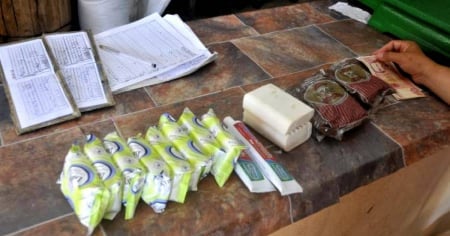In an official announcement made on Wednesday, December 18, during one of the sessions of the Fourth Ordinary Session of the National Assembly of People's Power (ANPP) in its X Legislature, the Cuban government announced the dissolution of the Cuban Bread Chain as a national entity.
The measure was confirmed by Prime Minister Manuel Marrero Cruz, who noted that the decision is intended to address the need to correct "distortions" in the processes of decentralization and in the management of local competencies.
"The new regulation that will address this and resolve all these distortions will be released in the coming months, early next year," stated the Prime Minister.
Regarding the Cuban Bread Chain, Marrero Cruz stated: “It makes no sense for it to be a national entity; it will transition to the municipalities in the coming year.”
This decision is based on the premise that local governments will take direct control of bakeries and distribution points, aiming to improve efficiency and better meet the needs of the population.
However, it raises more questions than certainties because, although in theory it could decentralize and streamline management, it risks deepening inequalities among regions, as the administrative and logistical capacities of municipal governments vary significantly.
Furthermore, decentralization may exacerbate the already critical situation regarding the supply of basic food items on the island. Bread, which is considered an essential product in the Cuban diet and has faced many challenges recently, is highly dependent on the stability of production and distribution chains. Any disruption in this process could have an immediate impact on the daily lives of citizens.
In this regard, the government’s approach seems more focused on easing the economic pressure on the state than on addressing the urgent needs of the population.
In the year that is about to conclude (2024), the shortage of wheat flour has caused interruptions in the production and distribution of staple bread across various provinces of the country.
In April, for example, significant disruptions were reported in Villa Clara and Matanzas, where authorities announced the inability to produce regulated bread due to a shortage of raw materials.
In September, the situation worsened with the reduction of the basic basket bread size from 80 to 60 grams, a measure that authorities justified due to the low availability of wheat flour. This reduction sparked discontent among the population, which is already facing numerous difficulties in accessing essential food items.
Nonetheless, government promises to stabilize the production and distribution of bread have not been lacking; however, the disruptions have persisted, revealing the fragility of supply chains and the reliance on imports amidst an economic crisis that has limited the capacity to acquire essential raw materials.
Frequently Asked Questions about the Disappearance of the Cuban Bread Chain
Why did the Cuban government decide to eliminate the Cuban Bread Chain as a national entity?
The Cuban government has decided to eliminate the Cadena Cubana del Pan as a national entity in order to correct "distortions" in the decentralization processes and to enhance local management of bakeries and distribution points. According to Prime Minister Manuel Marrero Cruz, direct administration by the municipalities could improve efficiency and better address the needs of the population.
What risks does the decentralization of the Cuban Bread Chain involve?
The decentralization of the Cuban Bread Chain could deepen inequalities among territories due to variations in the administrative and logistical capacities of municipal governments. Moreover, it could exacerbate the critical situation regarding the supply of basic food items on the island, as bread is an essential product in the Cuban diet and relies on a stable production and distribution chain.
How has the shortage of wheat flour impacted bread production in Cuba?
The shortage of wheat flour has led to a reduction in the size of the staple bread from 80 to 60 grams, a measure the government justifies by the low availability of raw materials. This situation has generated discontent among the population, who are already struggling to access basic food items.
What impact would decentralization have on the quality of bread in Cuba?
Decentralization could impact the quality of bread if municipalities do not have the necessary resources to maintain production standards. Control over the quality of bread may vary significantly between different municipalities, leading to disparities in the final product received by the population.
What measures has the Cuban government taken to stabilize bread production?
The Cuban government has promised to stabilize the production and distribution of bread, although problems have persisted. Efforts have been made to adapt management at the local level, but significant challenges remain due to a lack of resources and reliance on imports amid an economic crisis.
Filed under:
